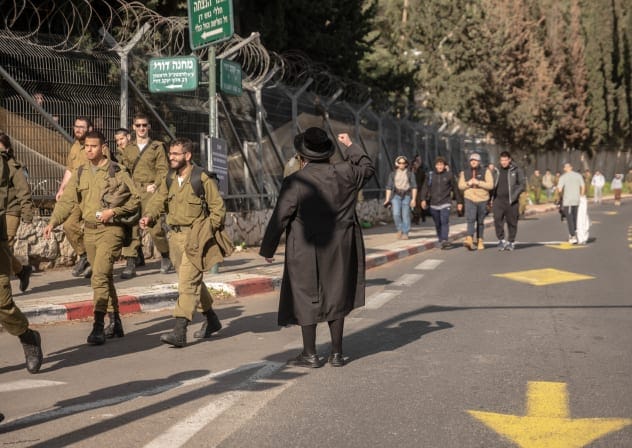One killed, two injured, including child, after car explodes near Haifa
A car explosion in Kiryat Yam near Haifa killed a 40-year-old man and seriously injured a 30-year-old man and a 13-year-old boy, Rambam Health Care Campus, Haifa, confirmed.

A car explosion in Kiryat Yam near Haifa killed a 40-year-old man and seriously injured a 30-year-old man and a 13-year-old boy, Rambam Health Care Campus, Haifa, confirmed.




Facing an acute manpower shortage, the IDF has concluded that if it wants haredim to enlist, accommodation is required.

Partnering with IsraAID, former hostages Aviva and Keith Siegel toured the camp's facilities as part of their recent entry into humanitarian work.

The IDF released footage showing armed operatives transporting the weapons via ambulance, which was recorded during routine drone sweeps along the Strip's Yellow Line.

Who is expected to replace Col. Avichay Adraee? His deputy, Maj. Ella Wawiya, known in the Arab world as “Captain Ella.”

Prior to the game, Maccabi Tel Aviv held a ceremony honoring Partizan for hosting the club for more than two years after the terrorist attacks by Hamas on October 7, 2023.

According to the police, the "couple" was stopped in their vehicle at a crossing between the West Bank and Israel.

"The strike targeted the terrorist Bilal Abu Assi, a Hamas Nukhba Platoon Commander who led the infiltration into Kibbutz Nir Oz on the brutal October 7th massacre," the IDF stated.

Netanyahu faces bribery, fraud, and breach of trust charges in Case 4000, accused of advancing Bezeq merger steps that benefited the company while receiving favorable Walla coverage.

Fabrizio currently serves as a central adviser and pollster to US President Donald Trump. He also served as Trump's pollster during both the 2016 and 2024 presidential campaigns.

Government officials believe Christian pilgrims, Evangelical travelers, and Jewish communities overseas can form the backbone of a gradual recovery, even as broader tourism remains constrained.
